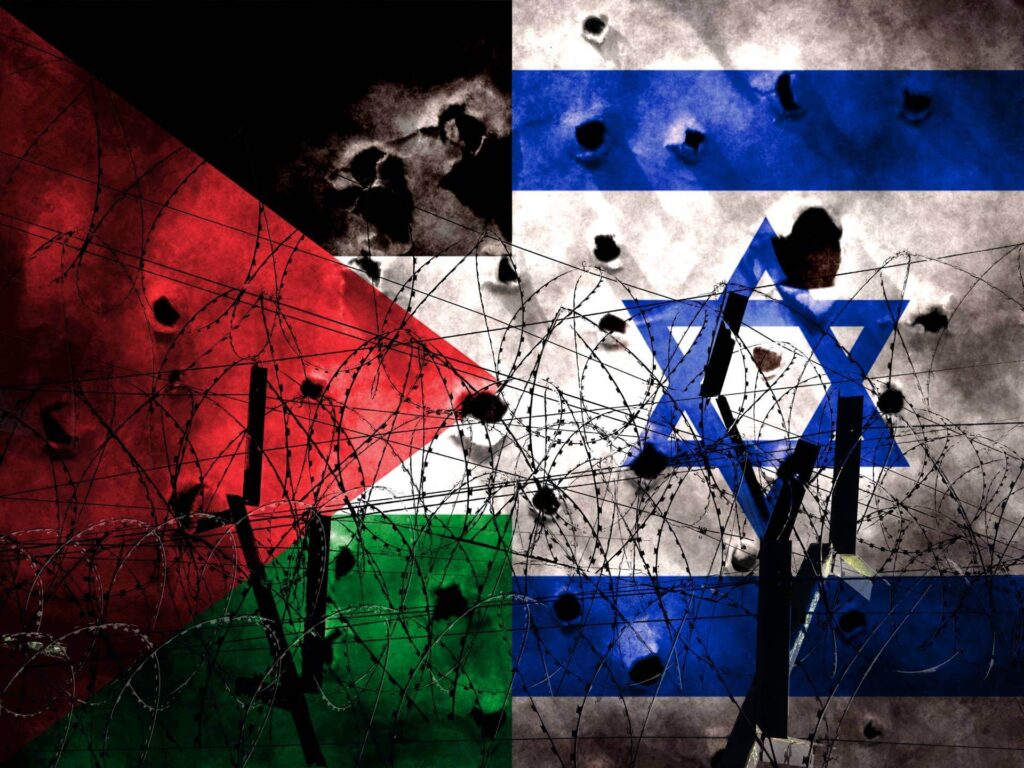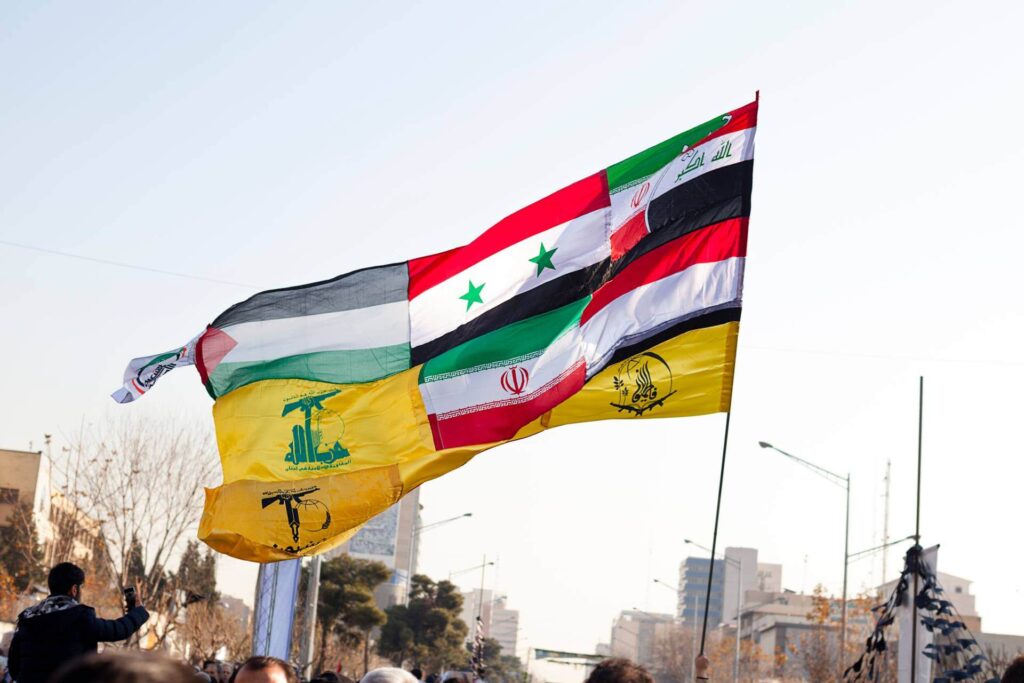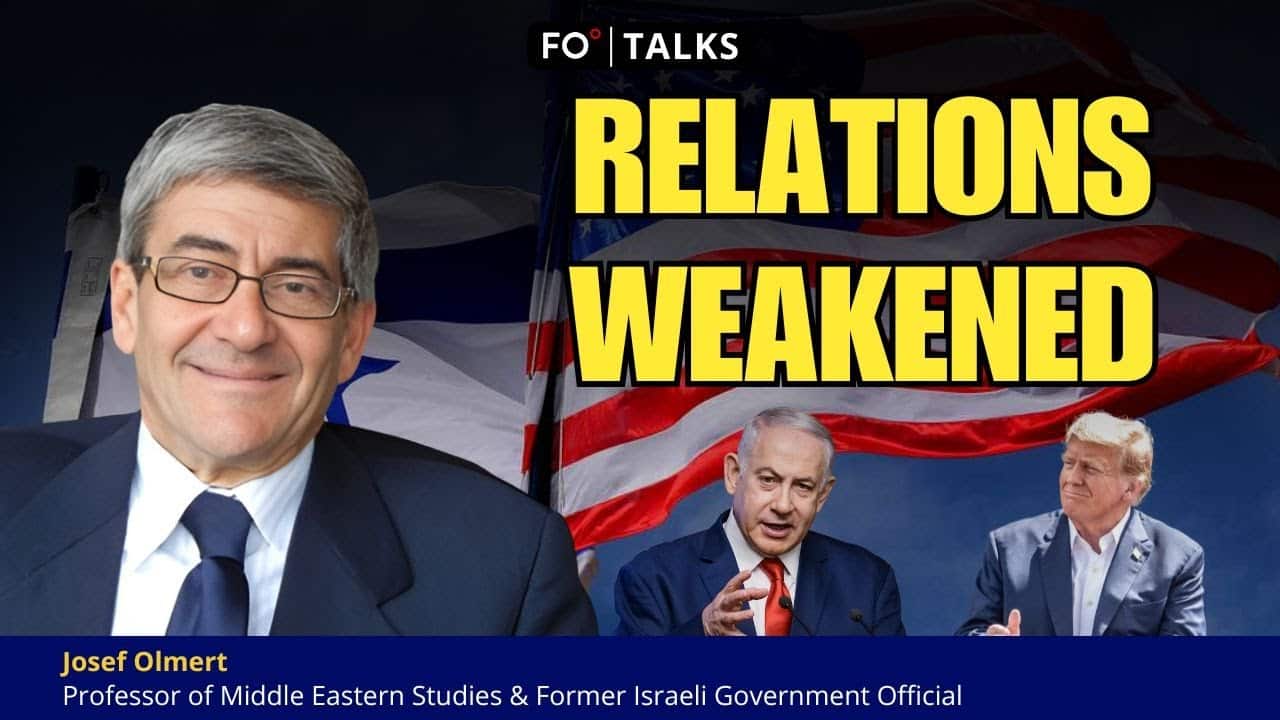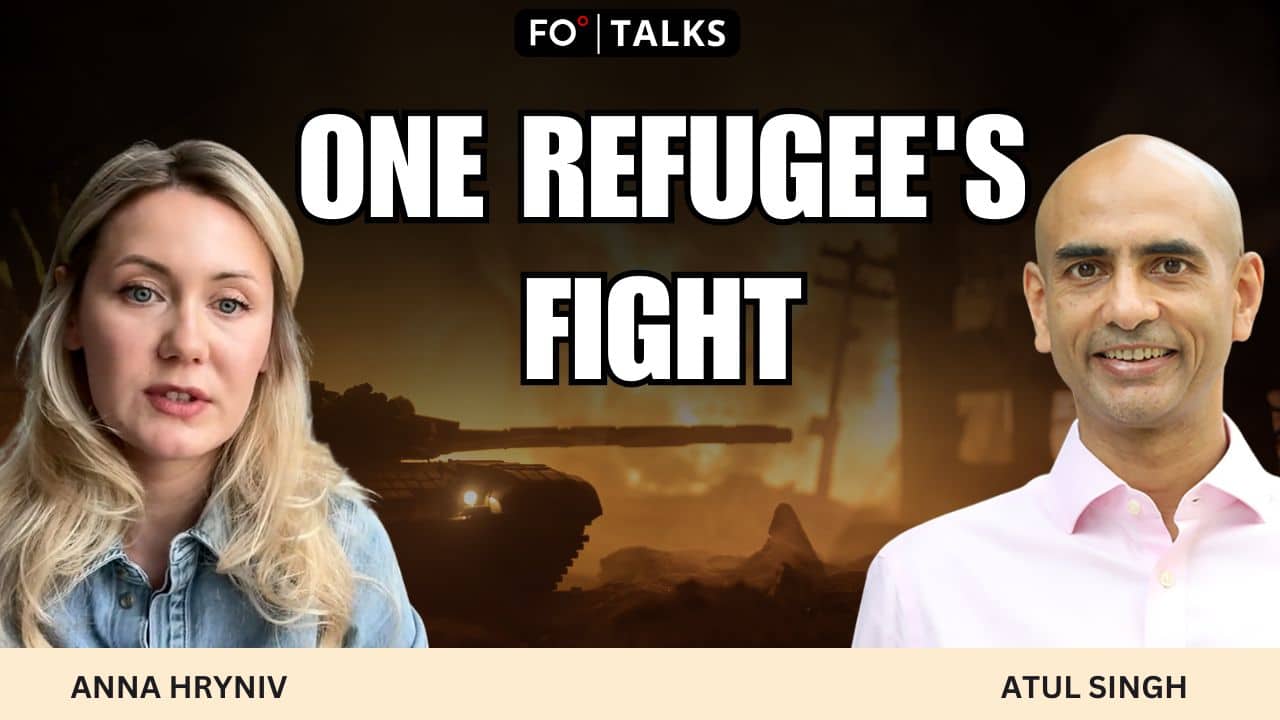Israeli public intellectual Hillel Schenker speaks to Editor-in-Chief Atul Singh from Tel Aviv where rocket attacks are a daily feature. Schenker explains that the situation is fluid. There are fears of Hezbollah opening up a northern front and regional contagion. About 100,000 Israelis are internal refugees.
In the run-up to the ghastly attacks of October 7 — 50 years and a day after the 1973 Yom Kippur War — Israel made many mistakes. Israel’s high-tech cyber intelligence failed. So did the new watchtowers and automatic systems. More important than Israel’s intelligence failure is its conceptual failure, which is similar to 1973.
The heads of the military have accepted responsibility for the October 7 failure. Israeli Prime Minister Benjamin “Bibi” Netanyahu has not. He is incapable of accepting mistakes. Bibi propped up Hamas to weaken Fatah. He killed the two-state solution. He has been centralizing power for a while and caused major divisions in Israeli society through his judicial reforms.
Note that Israel does not have a constitution. The Israeli Declaration of Independence dated May 14, 1948 promised to adopt a constitution by October 1 that year. Yet David Ben-Gurion, Israel’s first prime minister, did not adopt one because of the hot button-issue regarding the relationship between religion and the state.
So, Israel does not have a constitutionally entrenched bill of rights. Neither does it have a clear separation of power. There is no independent executive, and the legislature is unicameral. So, whatever party or coalition holds the majority in the sole chamber of the legislature — the Israeli parliament Knesset — wields unlimited legislative and executive power. The only check on the executive is the judiciary, whose rights and powers can technically be modified with a simple act of legislation. However, some laws have acquired a constitutional nature by tradition. These are seen as the bedrock of Israeli democracy.
Israel’s struggling democracy
Between 2019 and 2021, Israel went through a period of electoral turmoil. Four elections failed to produce a clear majority in the Knesset. Finally, in 2022, Bibi made a spectacular comeback and his right-wing coalition won a majority.
Likud, Bibi’s party, is a secular Zionist party. Its coalition partners are far-right, religious Zionist parties. Among these was Otzma Yehudit, led by Itamar Ben-Gvir, a former member of the banned Kach party. Ben-Gvir was not allowed to serve in the military because of racism. Now he is the minister of national security.
Bezalel Smotrich, the finance minister, wrote “the Decisive Plan,” calling for the outright annexation of the West Bank. Of the cabinet ministers, nine, including Smotrich and Ben-Gvir, hail from settlements in the occupied West Bank, which international law deems illegal.
A large proportion of the support for Bibi’s coalition comes from Haredis, ultra-Orthodox Jews. They now comprise 13.3% of the Israeli population and many of them are religious zealots. Haredis tend not to serve in the Israeli Defense Forces (IDF) and do not pay taxes either. Their religious education is subsidized by the state. Haredis tend to have more children than secular Jews and their electoral power is growing.
Bibi’s coalition is the most right-wing in Israeli history. Thanks to the proportional representation system, members of many parties get elected to the Knesset. Therefore, coalitions tend to form governments because it is improbable for a single party to achieve a majority. In a historical first, Bibi’s coalition has no centrist party. Hence, there is no moderating influence on his government. The center of gravity in Israeli politics has strikingly moved to the right.
Not only is Bibi constrained by his allies but also Likud has lurched to the right. Its traditional liberal values have all but disappeared. Bibi’s winning coalition was not known for its competence though and the Hamas attacks brought all the failings of this government into sharp focus.
After the October 7 attacks, Bibi brought the center-right Benny Gantz and Gadi Eisenkot into a national unity government of sorts. Both men are former chiefs of the Israeli Defense Forces (IDF) and bring an element of moderation, competence and responsibility into the war cabinet.
Note that Bibi is no fool. He was a capable finance minister and remains a great rhetorician. But his divide-and-rule policy of weakening Fatah and propping up Hamas has backfired spectacularly. In addition, he is corrupt. Hounded by three separate corruption cases, Bibi must remain in power in order to keep the judiciary at bay. Hence, he has taken a hatchet to the judiciary’s powers in order to retain a get-out-of-jail-free card. His predecessor, Ehud Olmert, ended up in jail over far lighter charges and Bibi does not want to follow in Olmert’s footsteps.
Israel’s response to the war
On the eve of the Hamas attack, the three IDF battalions tasked with guarding the Gaza border were away. They had been called to the West Bank in order to protect religious devotees celebrating Simchat Torah. If they had not been away, the attack might not have been such a tragic catastrophe.
This reallocation of IDF troops to the West Bank is part of a bigger issue. The IDF is meant to defend Israel from its foreign foes. Instead, it has been transformed largely into a police force tasked with keeping the Palestinians in check. Preoccupied with police duties, the IDF is no longer as effective as a military as it once was in the past.
Lack of troops may have exacerbated the problem, but this does not mean that more troops are the solution. Israel is now raising an army to fight Hamas. Overnight bombing has already caused “total chaos” and ground forces are “expanding their operations.” But it is implausible that Israel could destroy Hamas successfully. Aside from their 30,000 fighters, Hamas is an idea. Its fighters are indoctrinated diehards, and they will not give up because they are defeated on the ground. So, a ground invasion would be a mistake; it would gain Israel little but cost a high number of Israeli and Gazan lives.
There are some signs that Israel is indeed hesitating to carry out a full ground attack. Perhaps Israel is heeding the pleas by its US ally not to invade Gaza and to respect international law.
What are Israel’s options?
So what can be done? A ceasefire is the way forward. However, Hamas cannot remain in control of Gaza. This organization has to be removed and power transferred to a competent entity. Maybe the Palestinian Authority can do it, but its position is weak. An international regime seems a better alternative. It could take over the administration of Gaza. The United Nations and the Arab League would provide the institutional basis to achieve this alternative, perhaps with the cooperation of individual Arab states, such as Egypt, the Gulf States and Jordan.
We should remember that, in 2002, the Arab League unanimously adopted the Arab Peace Initiative. This offered Israel full recognition and normalization of relations in exchange for an end to the occupation of Palestinian territories, the establishment of a Palestinian state, and an agreed-upon resolution to the Palestinian refugee crisis. This ought to be the basis of a lasting peace between Israel and Palestine. No Israeli administration, however, has taken this initiative seriously.
Does the international community still have the unity and the ability to push for peace in Palestine? In a way, it doesn’t matter. It must do so, or everyone will feel the impact of ongoing conflict. The normalization of ties between Israel and Egypt may not have been possible without the then US president Jimmy Carter’s intervention. Even against seemingly impossible odds, the world can and must achieve something, if leaders are determined enough.
Perhaps the world cannot come together because the conflict is in the interests of many parties. In particular, Russia and China benefit from the distraction. Both powers get breathing room if US attention is dispersed and its resources are allocated to the eastern Mediterranean. So, the principal actor who still has the motive and the ability to act is the US. As the global superpower and closest Israeli ally, the US cannot renege from its responsibility. The US must put pressure on Israel.
The truth is that there are no easy options. It would be lovely if we could just nicely ask Hamas to leave. That is not an option. However, even Hamas does not want an all-out war that could last years, even decades. If an international regime were the only other option, it is conceivable that Hamas might agree. Something similar has happened in the past. In 1982, Yasser Arafat, the leader of Fatah was convinced to pack up his bags and leave from Lebanon for Tunis.
Hamas may be fanatical, but we do not understand it as well as we think we do. Like all human beings, they are complicated, and they could perhaps be convinced to take a different tack. Hamas might not have predicted either the success of their attack or the ferocity of the Israeli response. Hamas leaders might very well be second-guessing their strategy.
If things do not get better, they could get much worse. It will not be World War III, since Russia and China are aloof from the conflict. But Hezbollah could get involved. Discontent with Arab monarchs created by anger over the Palestine issue could lead to uprisings in the name, not of democracy, but of Islamism. Mobs could challenge the Hashemite Kingdom of Jordan and its fall could trigger a chain reaction across the region. This situation, thus. could spiral much further out of control, leading to loss of life and misery across the region.
If a ceasefire comes soon, and Hamas releases its Israeli hostages, the belligerents could take the first step toward peace. Then, we will need to create a new post-conflict reality that will involve not only Israel and Palestine but also the Arab world and the US. Notably, all actors would need to make wise decisions.
[Erica Beinlich and Anton Schauble wrote the first draft of this piece.]
The views expressed in this article/video are the author’s own and do not necessarily reflect Fair Observer’s editorial policy.













































Comment